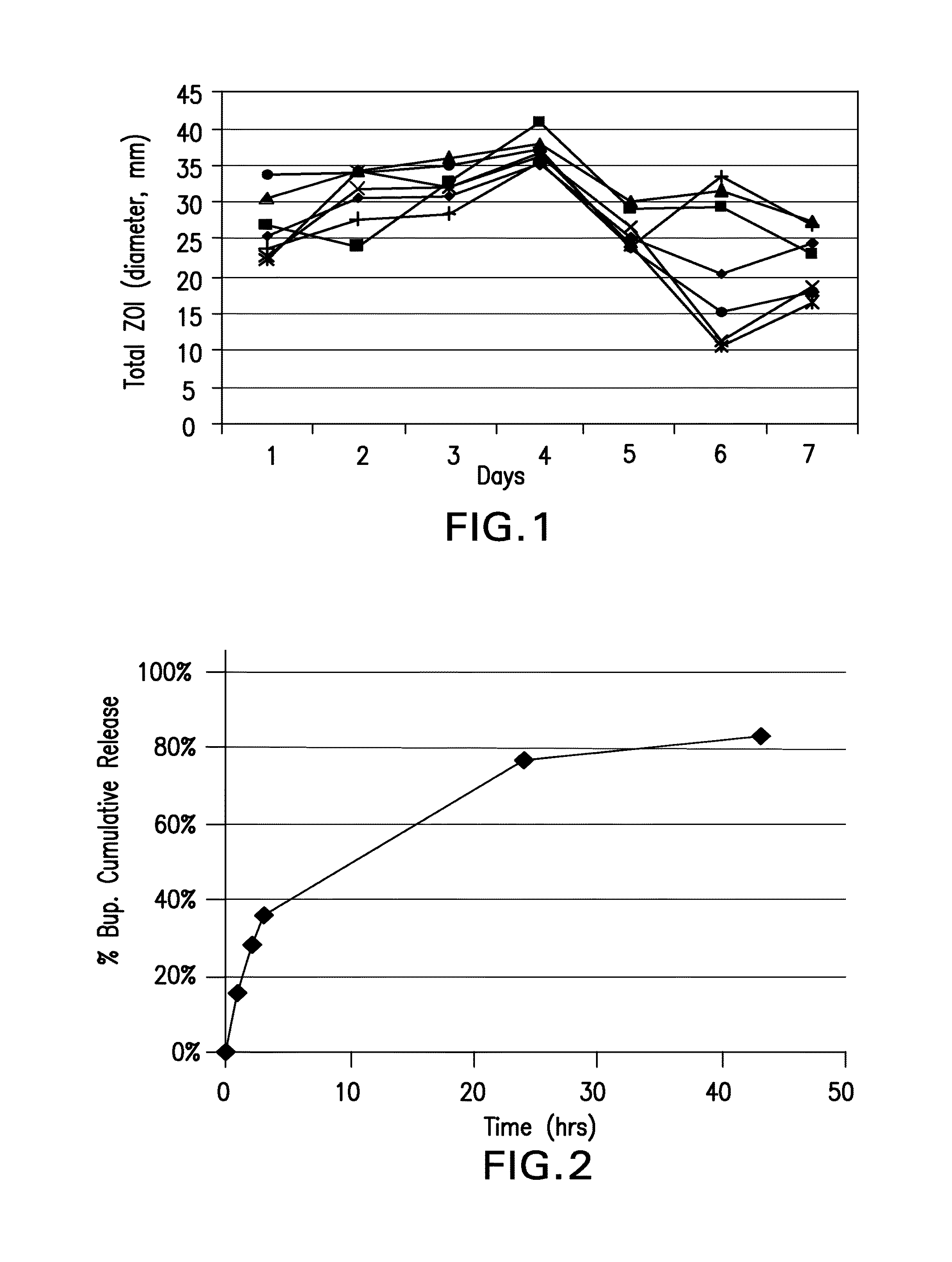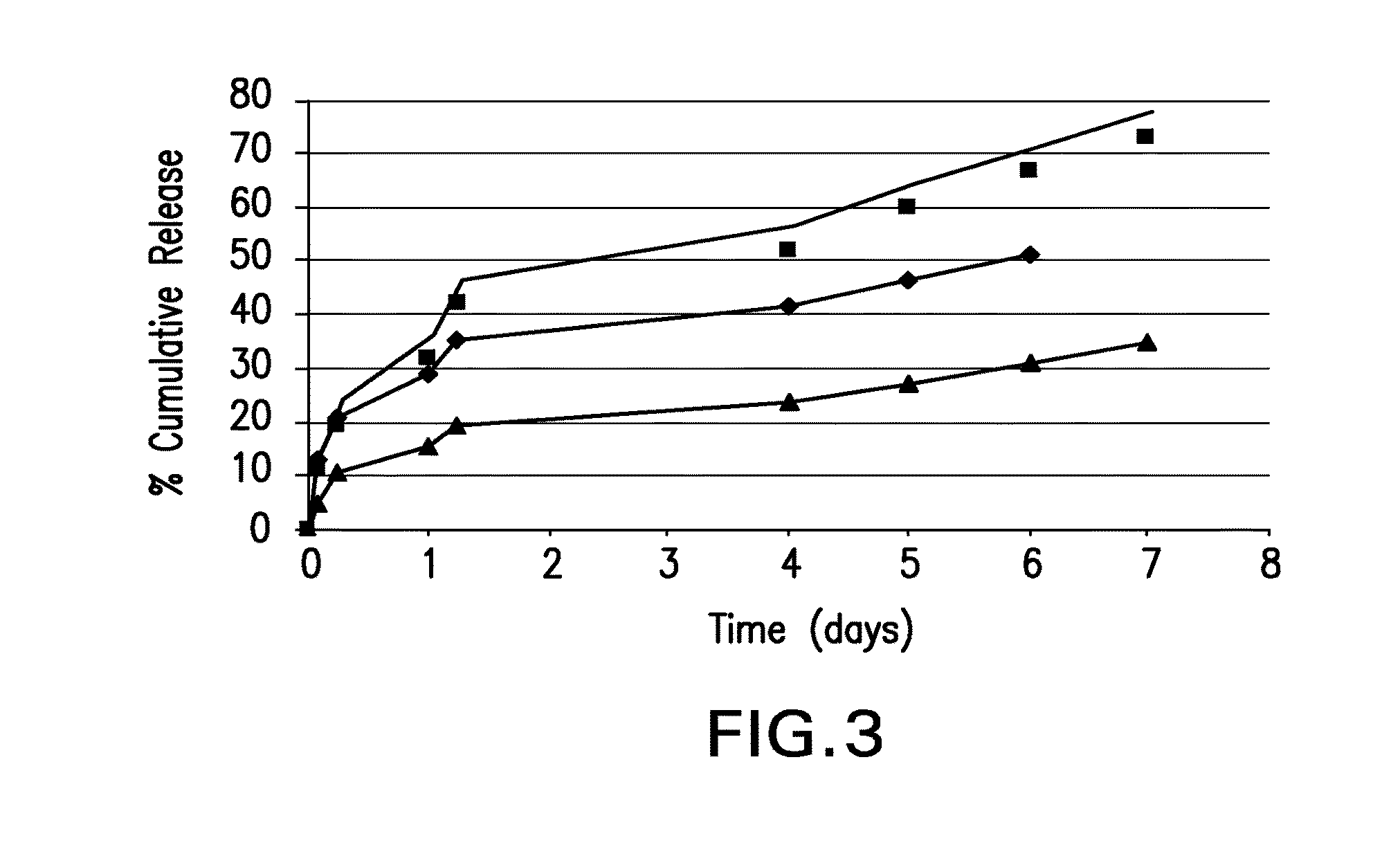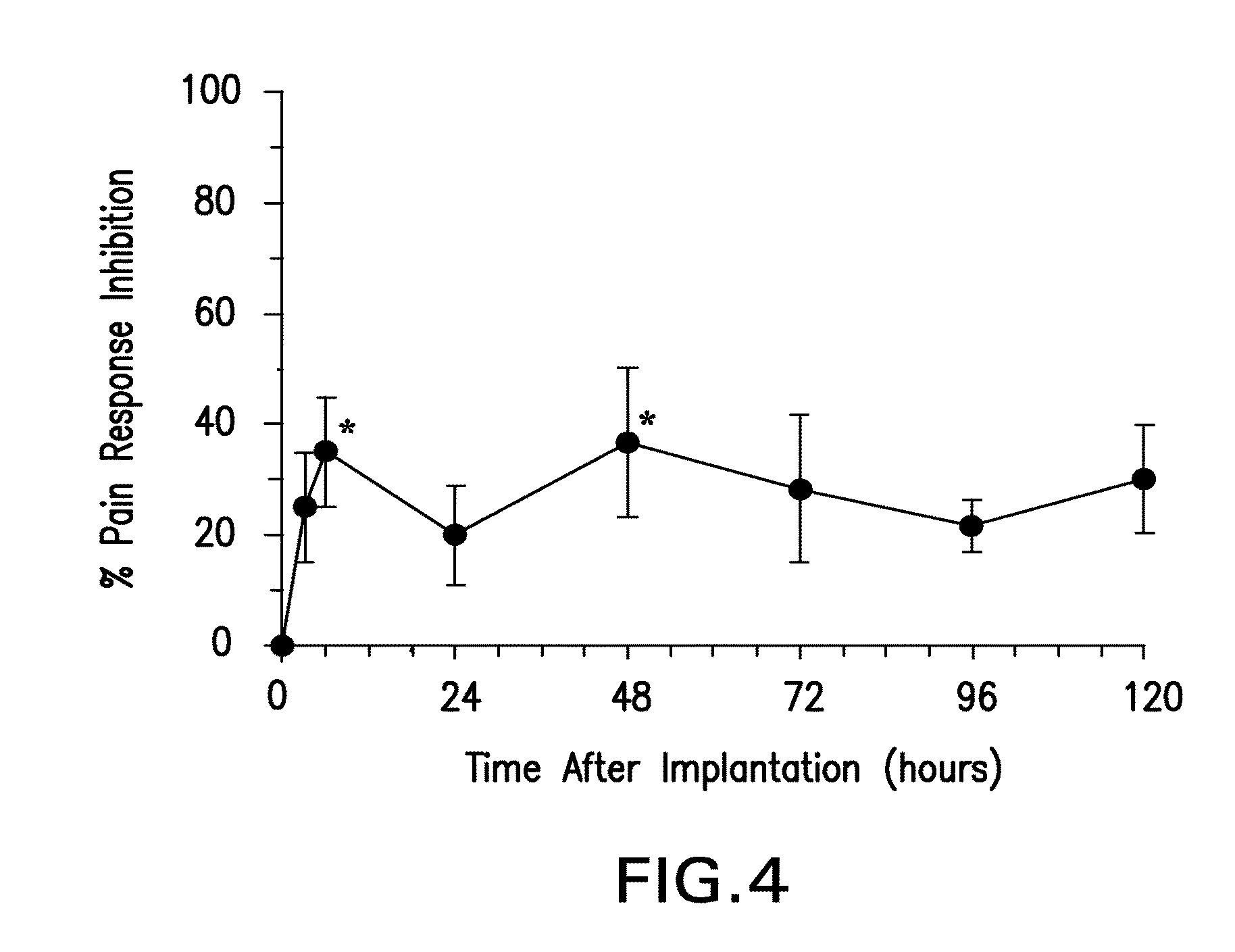Mesh Pouches for Implantable Medical Devices
a medical device and mesh pouch technology, applied in the field of mesh pouches for implantable medical devices, can solve the problems of little that can be done, antibiotics are effective at preventing implant-related infections, and scar tissue formation is excessive, so as to reduce the swelling and inflammation associated with implant-or-operation complications, reduce the effect of scar tissue formation, and attenuation of pain
- Summary
- Abstract
- Description
- Claims
- Application Information
AI Technical Summary
Benefits of technology
Problems solved by technology
Method used
Image
Examples
example 1
Antibiotic Release from DTE-DT Succinate Coated Mesh
A. Preparation of Mesh by Spray-Coating
[0110]A 1% solution containing a ratio of 1:1:8 rifampin:minocycline:polymer in 9:1 tetrahydrofuran / methanol was spray-coated onto a surgical mesh by repeatedly passing the spray nozzle over each side of the mesh until each side was coated with at least 10 mg of antimicrobial-embedded polymer. Samples were dried for at least 72 hours in a vacuum oven before use.
[0111]The polymers are the polyarylates P22-xx having xx being the % DT indicated in Table 3. In Table 3, Rxx or Mxx indicates the percentage by weight of rifampin (R) or minocycline (M) in the coating, i.e., R10M10 means 10% rifampin and 10% minocycline hydrochloride with 80% of the indicated polymer. Table 3 provides a list of these polyarylates with their % DT content, exact sample sizes, final coating weights and drug coating weights.
TABLE 3Polyarylate Coated Meshes with Rifampin and Minocycline HClAvg. CoatingCoatingSampleCoating P...
example 2
Bupivacaine Release from DTE-DT Succinate Coated Mesh
A. Preparation of Mesh
[0116]For the experiment shown in FIG. 2, a first depot coating containing 540 mg of bupivacaine HCl as a 4% solution with 1% P22-27.5 polyarylate in a mixture of THF Methanol was spray coated onto a mesh. A second layer consisting of 425 mg of the same polyarylate alone was deposited on top of the first layer.
[0117]For the experiment shown in FIG. 3, a solution of approximately 4% bupivacaine in DTE-DT succinate polymer having 27.5% DT was sprayed onto a mesh using the indicted number of passes followed by the indicated number of dips into a solution of the same polyarylate in THF:Methanol (9:1)
B. Anesthetic Release
[0118]Pre-weighed pieces of mesh were placed in PBS at 37° C. and a sample withdrawn periodically for determination of bupivacaine by HPLC. FIG. 2 shows the cumulative release of bupivacaine into PBS from the multilayer polyarylate coating as a function of time. Nearly 80% of the bupivacaine had b...
example 3
In Vivo Bupivacaine Release from DTE-DT Succinate Coated Meshes
A. Overview
[0120]Rats with jugular cannulas for pharmacokinetic studies were surgically implanted with a 1×2 cm P22-27.5 polyarylate-coated mesh containing 7.5 mg of bupivacaine / cm2. Before surgery, baseline pin-prick responses to nociception were measured at the planned surgical incision site, and baseline blood samples were obtained. A hernia was created by incision into the peritoneal cavity during via subcostal laparotomy, and a Lichtenstein non-tension repair was performed using the bupivacaine-impregnated polyarylate-coated mesh. Blood samples were drawn at 3, 6, 24, 48, 72, 96, and 120 hours after implantation. Prior to drawing blood, the rats were subjected to a pin prick test to assess dermal anesthesia from bupivacaine release. The behavioral results indicate that moderate levels of dermal anesthesia appeared from 3 to 120 hours, with the amount at 6 and 48 hours significantly above baseline (p<0.05). Pharmacok...
PUM
| Property | Measurement | Unit |
|---|---|---|
| time | aaaaa | aaaaa |
| flow rate | aaaaa | aaaaa |
| surgical time | aaaaa | aaaaa |
Abstract
Description
Claims
Application Information
 Login to View More
Login to View More - R&D
- Intellectual Property
- Life Sciences
- Materials
- Tech Scout
- Unparalleled Data Quality
- Higher Quality Content
- 60% Fewer Hallucinations
Browse by: Latest US Patents, China's latest patents, Technical Efficacy Thesaurus, Application Domain, Technology Topic, Popular Technical Reports.
© 2025 PatSnap. All rights reserved.Legal|Privacy policy|Modern Slavery Act Transparency Statement|Sitemap|About US| Contact US: help@patsnap.com



